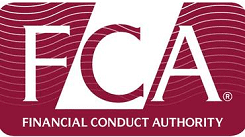LeapRate Exclusive… LeapRate has learned that a secret, invitation-only meeting was held yesterday in London between the FCA and senior representatives from several of the leading regulated Forex and CFD brokers in the UK.

The meeting also gave the brokers, as a group, the opportunity to state their views on the proposed rules themselves, ahead of the FCA’s feedback deadline of March 7, in less than four weeks.
The FCA has been taking a three-pronged approach leading up to the March 7 deadline date:
- meetings with brokers on an individual basis,
- meetings with the brokers as a group, such as the meeting yesterday, as well as with a couple of Forex, CFD and financial spread betting industry associations,
- feedback from traders and, frankly, anyone interested in getting their viewpoint across.
We also learned some interesting things regarding the differing views of several brokers, and the FCA’s own stance on the matter.
Apparently, while the brokers as a group and (generally) in public have been opposed to the rules as they stand and especially the hard 50x leverage cap, a number of leading brokers have quietly let the FCA know that they favour the hard leverage cap.
And why not?
Offers of ultra-high trading leverage, and outsized deposit bonuses, are two of the key tools which many of the small and mid-sized brokers have been using to chip away market share from the ‘big boys’ in the UK industry, such as IG Group Holdings plc (LON:IGG), CMC Markets Plc (LON:CMCX), and Plus500 Ltd (LON:PLUS).
While nobody likes to be over-regulated, taking away those tools (for brokers which still want to be able to market themselves as FCA-licensed brokers) removes two of the most effective means smaller competitors have in the industry. Without those tools, it will be much harder for smaller, aggressive brokers to attract new clients.
As far as the FCA itself, we understand that the regulator has been holding its cards close to the vest in most of its industry and company meetings, not really indicating where things are likely to shake out.
As far as process, after the March 7 deadline the FCA will collect all the data and views it has received, and after an internal consultation and deliberation process will (likely) formalize the new rules, as stated or amended in a formal Policy Statement, early in the summer.
So what is likely to happen?
We have learned that the bonus ban looks like a ‘done deal’ as far as the FCA is concerned.
However there is likely going to be some flexibility on the leverage cap. That could take the form of a more relaxed cap, in the 100x range, or a soft 50x cap similar to that recently instituted by CySEC in Cyprus. The soft cap mandates 50x as the default leverage to be offered all clients, but allows for higher leverage on request to experienced traders, with certain other conditions attached to avoid abuse of high leverage. For example, individual highly leveraged individual positions are limited within a trader’s entire portfolio.
(That is, a trader with $1,000 in equity cannot open up a $100,000 position in just one currency pair. If a trader decides to use high leverage in his/her portfolio it must be divided among a number of trades and unrelated positions.).
We will continue to follow this story as it develops.
